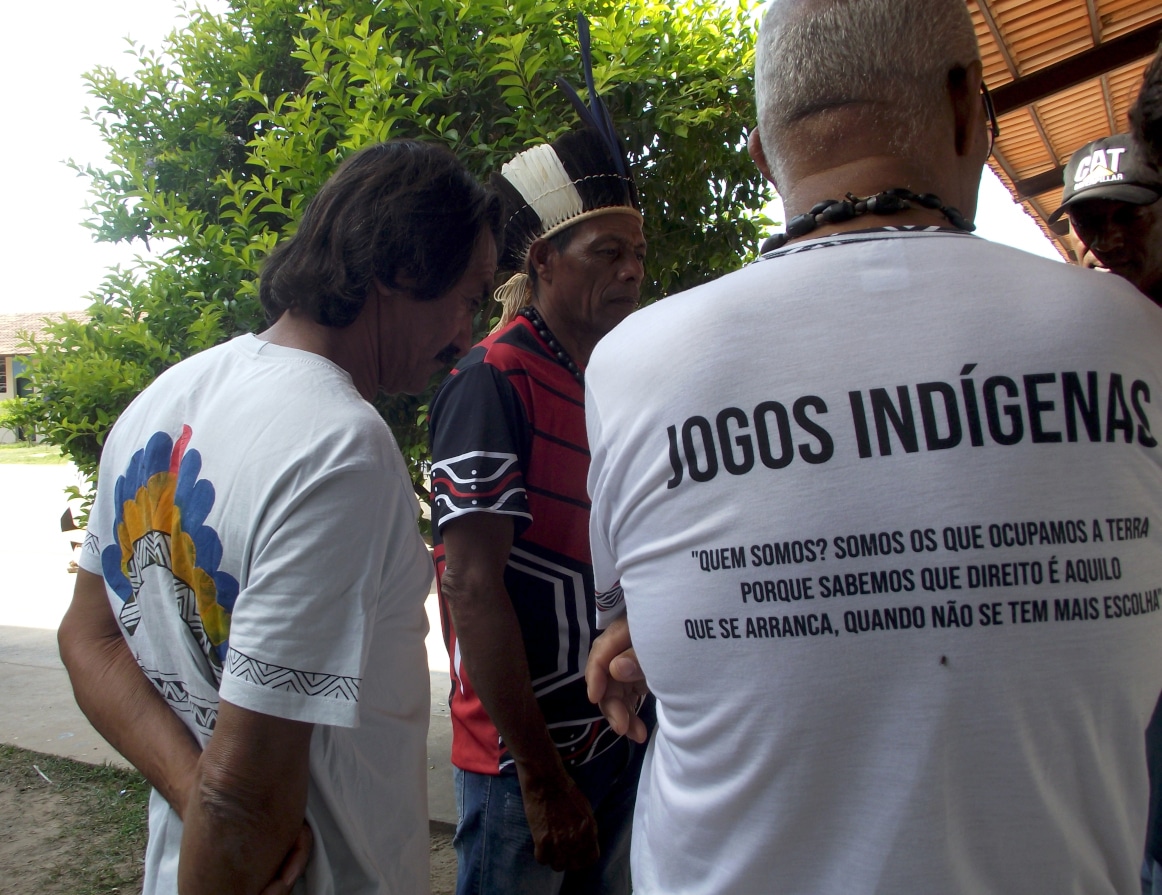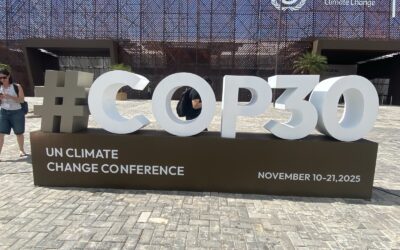[portugues abajxo]
As COP30 convenes in Brazil, governments and corporations are spotlighting biomass as a key part of the “green transition,” promoting it under national decarbonisation and bioeconomy agendas. The Belem X4 pledge, for example, aims to quadruple biofuel production. But a new briefing from the Biomass Action Network’s Latin America Working Group and the Global Forest Coalition reveals the stark reality behind these claims: industrial biomass is driving deforestation, land concentration, and social conflict, while undermining real climate action.
Decarbonisation or Dispossession? The Extent of Industrial-Scale Biomass Energy in Latin America and Its Impacts on the Region.
Read the briefing now in English / Baixar em português / en español
Industrial Biomass Expansion in Latin America
Across the region, industries from steel to pulp and paper, and from ethanol to agribusiness, are increasingly relying on biomass—wood harvested from forests and plantations—as a substitute for fossil fuels. Presented as sustainable and renewable, this energy model is contributing to ecological destruction, reinforcing inequality, and dispossessing communities. Large-scale burning of woody biomass exacerbates climate change at a critical moment, rather than mitigating it.
The briefing documents the main industrial sectors generating energy from biomass and their impacts:
- Charcoal for “green steel”: In Brazil and Paraguay, millions of tonnes of wood are burned to produce charcoal for steel. Companies like Aperam BioEnergia and Aço Verde do Brasil claim carbon neutrality, yet local communities face water scarcity, pesticide exposure, forced labour, and land dispossession.
- Pulp and paper industry: Eucalyptus and pine plantations fuel biomass power stations, harming biodiversity and Indigenous communities, while carbon offset mechanisms mask the true emissions. The Valdivia pulp mill in Chile, for example, has caused serious environmental and social harms to Mapuche communities.
- Biomass for ethanol and grain drying: Across Brazil, Paraguay, Argentina, and Uruguay, biomass energy locks land into industrial monocultures, intensifying water stress, deepening inequality, and reinforcing corporate control over rural territories.
Environmental and Social Impacts
Industrial biomass energy reproduces patterns of extraction and dispossession. Monoculture plantations degrade soils, reduce biodiversity, and disrupt water cycles. Carbon accounting often hides the true climate cost, while land concentration and industrial forestry displace smallholders and Indigenous peoples. Labour is precarious, while profits are concentrated among multinational corporations.
Conclusions and Recommendations
Industrial-scale biomass exemplifies the contradictions of the green economy: marketed as sustainable, yet entangled with environmental destruction and social injustice. A just energy transition must reject biomass as a climate solution and focus on rights-based, community-led, and ecologically sustainable alternatives.
The briefing calls for:
- Recognising and addressing social impacts, including land grabs and labour exploitation;
- Promoting forestry models that prioritise Indigenous and community rights;
- Rejecting false climate solutions and carbon accounting loopholes;
- Supporting agroecology, community-managed forests, and decentralised energy systems that genuinely reduce emissions without dispossession.
Why This Matters
With bioenergy expansion high on the COP30 agenda, this briefing highlights the risks of “green” narratives that serve corporate and financial interests, rather than climate justice. Civil society organisations across Latin America have documented how biomass expansion connects to land grabs, monocultures, and extractive economic models. As governments and investors celebrate bioenergy, communities on the frontlines continue to face environmental destruction, water stress, and the erosion of their rights.
Acknowledgements
This briefing draws on the work and testimony of multiple organisations and networks, including the Global Forest Coalition, Biofuelwatch, Global Energy Monitor, the Environmental Paper Network and its Biomass Action Network, BAN’s Latin America and the Caribbean Working Group, and national partners across Brazil, Chile, Paraguay, Argentina, Uruguay, and other countries. Portuguese translation by Janaina Uemura.
Read the briefing online in English and Portuguese and share widely to expose false solutions at COP30.
Descarbonização ou expropriação? A extensão da energia de biomassa em escala industrial na América Latina e seus impactos na região.
Com o início da COP30 em Belém, no Brasil, e com os holofotes voltados para a bioeconomia — incluindo o compromisso Belém 4X de quadruplicar a produção de combustível sustentável até 2035 —, este é um momento crítico para avaliar o que esses anúncios realmente significam para as florestas, para as comunidades e para a justiça climática.
Temos o prazer de compartilhar um novo briefing do Grupo de Trabalho da América Latina e do Caribe da Rede de Ação contra a Biomassa e da Coalizão Mundial pelas Florestas que expõe os impactos devastadores da energia de biomassa em escala industrial na região. Enquanto governos e corporações promovem a biomassa como energia “verde”, essa expansão está causando desmatamento, escassez de água, conflitos sociais e desapropriação de terras, ameaçando tanto as comunidades quanto o clima.
Leia o briefing agora em português / inglês
O que você encontrará nesta publicação:
Como o carvão vegetal para a produção de “aço verde” no Brasil e no Paraguai depende de milhões de toneladas de madeira proveniente de plantações de monocultura, expulsa comunidades, drena recursos hídricos e propicia o trabalho forçado.
Como as empresas de celulose e papel na América Latina incorporam usinas de energia a biomassa em grande escala às suas operações, usando a fachada das energias renováveis para aprofundar modelos de plantação extrativistas.
Como o agronegócio no Brasil, Paraguai, Argentina e Uruguai está queimando biomassa lenhosa para secar grãos em escala industrial e abastecer refinarias de etanol — vinculando a expansão da biomassa à concentração de terras e ao controle corporativo.
Um mapeamento claro dos impactos ambientais (e sociais): degradação florestal, perda de biodiversidade, violação dos direitos trabalhistas, escassez hídrica, falhas na contabilização de carbono e extração de recursos em moldes coloniais.
Principais conclusões e recomendações: devemos rejeitar a biomassa industrial como uma “solução” climática, promover modelos de manejo florestal baseados em direitos e na governança comunitária e pressionar por uma transição energética justa que não repita os antigos padrões de expropriação.
Por que isso importa: Enquanto o governo brasileiro se utiliza da COP30 para destacar a bioenergia e a bioeconomia — como o compromisso Belém X4, que pretende quadruplicar a produção de biocombustíveis —, este informe revela os riscos por trás da chamada “transição verde”.
A biomassa industrial é promovida como uma solução climática, mas reproduz modelos econômicos extrativistas, prejudica os esforços reais de mitigação e fere as comunidades locais.
O informe destaca, por sua vez, a necessidade urgente de alternativas baseadas em direitos e ecologicamente sustentáveis, incluindo florestas com governança comunitária e agroecologia. Já está disponível para download em inglês, espanhol e português. Leia-o online, saiba mais e partilhe-o amplamente com as suas redes:
O material já está disponível para download em inglês, espanhol e português. Leia online, conheça mais e compartilhe amplamente em suas redes:
Baixe agora o informe em inglês e português
Juntes, podemos denunciar as falsas soluções climáticas e apoiar transições energéticas que verdadeiramente protejam as pessoas, as florestas e o planeta.




